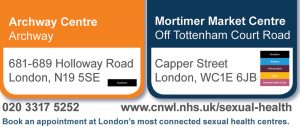Dear Dr Laura,
I’m 32 and I’ve always been a bisexual man. I have a new girlfriend, but she doesn’t know about my gay side. I have been really careful about using condoms when I have sex with guys, which is mostly when I travel to European cities for work. Recently more and more of my gay sexual partners are saying they are taking PrEP and don’t want to use condoms. I would like to consider taking PrEP too but I am not sure how to handle the issue with my girlfriend. I guess I could just hide the pills? I understand I can take them when I’m putting myself at risk, is that right? Thanks for your help.
Oliver
Dear Oliver,
The key issue with sexual health is that your risk of getting sexually transmitted infections (STIs) depends not just on who you have sex with, but who your sexual partners have sex with too. Your new girlfriend can’t make an informed decision about her risks, and how often she needs to have a sexual health check-up, if you’re not open about your other partners.
So, my first bit of advice is to sit down and tell her what you’ve told me (and the Boyz readers!). I would give this advice regardless of the gender of your other partners but the fact is that many STIs are more common in men who have sex with men so the risk of her acquiring an STI is greater.
You are totally correct that taking pre-exposure prophylaxis (PrEP) is a very effective way of preventing HIV transmission (more than 95% when taken correctly) and for anal sex you can either take it every day, intermittently (4 days a weeks e.g. ‘”the Ts and the Ss” where you take it on Tuesday, Thursday, Saturday & Sunday) or just before and after sex (event-based dosing). Event-based dosing means taking two pills between 2 and 24 hours before sex then one pill every 24 hours after sex for at least 2 doses or until you’ve had two sex-free days. You can read more about PrEP dosing here: iwantprepnow.co.uk/how-to-take-prep.
However, while PrEP may mean you no longer need condoms to prevent HIV transmission, it does not prevent other STIs. Condoms will reduce the risk of most STIs, though not 100%. For example, one of the main routes of gonorrhoea transmission is through oral sex and oro-anal sex (rimming) so you’d need to use condoms or dental dams to reduce your risk from these sexual activities.

Syphilis can all be transmitted from the mouth, or any affected skin surface. Warts often affect parts of the skin not covered by condoms, and people can still pass the wart virus on to other partners even if they have no visible warts themselves. At best, condoms are only 60% effective at preventing transmission of the wart virus.
When you’ve been for sexual health checks have you told the clinic you have sex with men? If not you may not have been offered the full range of tests and vaccinations: we recommend all men who have sex with men (whether exclusively or as someone who is bisexual) are vaccinated against hepatitis A and B and, as you are younger than 46, you are also entitled to human papilloma virus (HPV) vaccine which offers protection against genital warts, precancerous anal and genital conditions and, hopefully, anal, penile and throat cancers.
You can absolutely hide your pills if you prefer, and you can put the tablets in a different bottle (some people use multivitamins or supplements bottles) but my concern remains that hiding this, and your sexuality, from your girlfriend is not the best thing longer term.
When it comes to sex and STIs, people can only make informed decisions about risk if they know the facts and unless all of your male sexual partners have zero STIs, then you are potentially putting her at risks she is not aware of.
Remember, many STIs have no symptoms. Nobody can dictate what sort of relationship is ‘right’ or ‘wrong’ when it comes to your partners but, in my experience, honesty is always the best policy!

The Boyz Doc is Dr Laura Waters, an HIV and sexual health consultant at the Mortimer Market Centre in central London. Dr Laura answers your questions every week in Boyz. If you have a question for Dr Laura please email her at [email protected]














